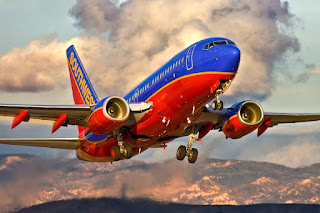What Southwest taught me about First Time Guests
Just last week I was standing in line waiting to board a Southwest flight, when someone tugged my jacket and asked what number I had. I turned around to see a kid who was about twelve years old. After finding his place in line, we began to talk. I learned he was from Chicago and this was his very first time flying. He asked me several questions about what to expect. It was obvious the kid was pretty nervous. I watched him gulp hard as our group begin to board.
We were sitting a few seats apart on the plane. I watched him as the flight attendants grabbed the microphone did their thing. His eyes were glued forward and he was listening to every word they said. Everyone else was either talking, reading or trying to get last minute emails out; but this kid was mesmerized. A frequent flyer would call these announcements redundant; but for the new flyer, the words were of the utmost importance. The attendants did a great job having fun with the announcements. The kid even laughed a few times. I could tell his nerves were beginning to calm.
Each Sunday there are first timers who walk into our buildings and sit in our chairs. Many probably feel the same way the kid on the plane felt; very nervous about the approaching experience. Like the flight attendants, we have to use language that is framed for the person who shows up for the first time and use it every single weekend. Yes, it is redundant to frequent flyers, but it makes all the difference in the world for the first time flyer.
Here's five things I learned from Southwest about building first time guest language:
Welcoming
I have never been on a Southwest flight where the attendant didn't say, "Welcome to Southwest airlines" and usually with a lot of enthusiasm. Every Sunday, we should always welcome new guests; they need to know we are very happy they are with us that day. They need to feel wanted and appreciated.
As the plane pulled away from the terminal, the flight attendant instructed everyone to fasten their seatbelt, place personal items underneath the seat and power down laptops. Most everyone on the plane already knew this, but the twelve year old kid didn't. Each Sunday we should always share next steps for new guests. Instructing them to fill out a card, telling them where to take it and how to obtain specific information is helpful.
Celebrated
It didn't take long for the flight attendant to discover it was the kid's first flight. Immediately she began to cater to him, laugh with him and help him feel comfortable. She didn't make an announcement or have the kid to stand up to be identified as the new flyer. We too must be able to identify new guests and discover ways to make them feel comfortable, celebrated and cared for without embarrassing them or making them feel weird.
Serving
The flight attendant served the kid differently than she served the rest of us. She was careful to explain exactly what kind of drink products were available, because he simply didn't know. For the rest of us, it was simply, "Can I get you something to drink?" We already knew what to expect. We were frequent flyers. Our strategy to serve new guests should look differently than how we serve regular attenders.
Gratitude
Once the plane landed, I heard the attendant's voice come across the speakers with a line that I hear just about every time I fly, "We know you had many choices in your travel today, so we thank you for choosing Southwest." We should let new guests know that we know there are lots of churches to pick from, and how grateful we are that they chose ours. This can be done from the stage and a follow up letter the next day.




Comments
Post a Comment